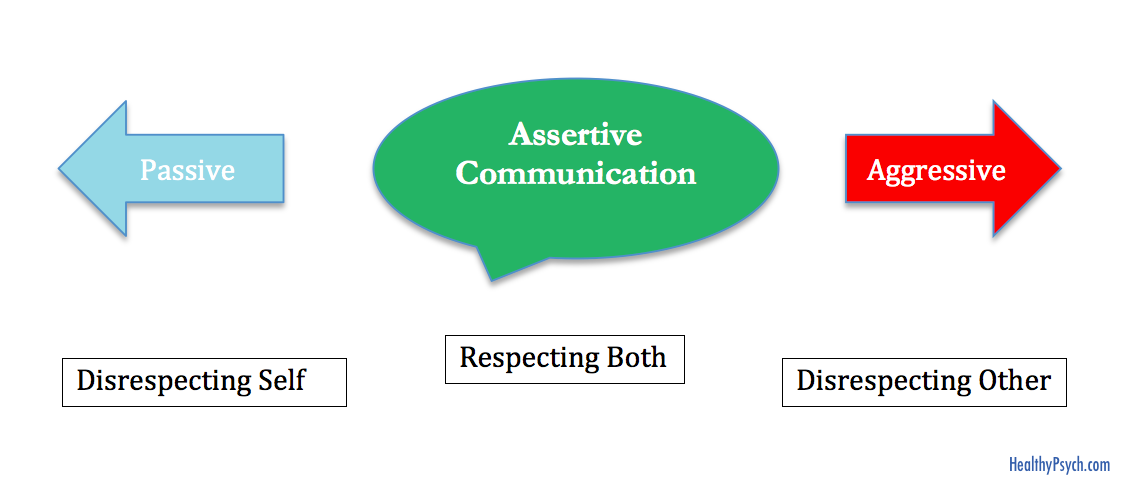
Assertiveness is communication and behavior that is respectful to all parties involved. That is the definition of assertiveness at its simplest level. Continue reading this blog post to learn more about healthy assertiveness.
Communication and behavior happen on a continuum from passive to assertive to aggressive. When you are passive, not expressing your needs or concerns, then you are disrespecting yourself. You are essentially saying that your needs and feelings are unimportant.
When you are aggressive, using harsh language or being manipulative, then you are disrespecting the other person. Here, you are saying that the other person’s needs and concerns are unimportant.
Assertiveness falls in the middle, whereby you are acting and communicating your needs and interests in a way that is honest and respectful of both yourself and the other person. Here, you are essentially standing up for yourself in a healthy manner.
If you are trying to work on being more assertive, use this simple model as a guideline. Ask yourself questions like, “Am I respecting myself in this situation?” “Am I disrespecting this other person by how I’m treating them?” If your answers indicate a devaluing of yourself or another person, try a different approach.
Keep in mind that you don’t have to like the other person involved. As a matter of fact, sometimes we have to be assertive – to stand up for our rights – with people who are actually quite difficult. They may not be people that you respect in terms of their behavior, but assertiveness is about YOU acting in a way that is respectful to both yourself and the other person.
Sometimes people know what makes sense in their gut, but they get caught up in worry about the outcome. For example, they may not want to offend the other person, or may fear some kind of negative response. Most of the time, if what you want to say or do can be done in a respectful manner to all parties involve, then it’s healthy and helpful to communicate that. Less often, you may be in a position where the person has volatile anger. In these situations, you need to be mindful of who you’re interacting with, as safety is always the priority. Individuals with anger management problems and a propensity for violence can feel threatened by assertive behavior. If this is the case, then you need to try to anticipate if being assertive may trigger a violent response. If you feel that this is a possibility, then it’s best to avoid approaching the person until a safer time arises to communicate your needs.
Reference: Reilly PM, Shopshire MS, Durazzo TC, and Campbell TA. Anger Management for Substance Abuse and Mental Health Clients: Participant Workbook. HHS Pub. No. (SMA) 12-4210. Rockville, MD: Center for Substance Abuse Treatment, Substance Abuse and Mental Health Services Administration, 2002.

Leave a reply
You must be logged in to post a comment.